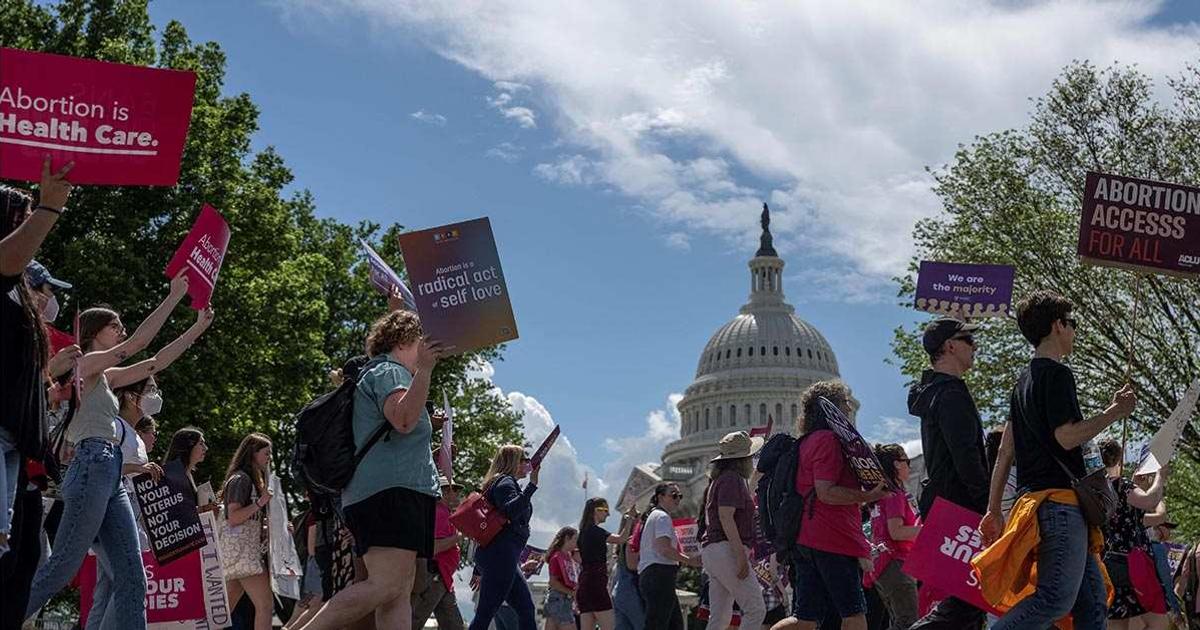Thirty-one percent of Republicans agree that women have the right to chose to not gestate a fetus as part of their body as covered by an unenumerated right to privacy and bodily autonomy that stood for fifty years until six Catholic justices decided to strike it down
Women have the unenumerated right of personal autonomy not to engage in the (act) of gestating a fetus unto it is capable of surviving live birth,,
The right to privacy often means the right to personal autonomy, or the right to choose whether or not to engage in certain acts or have certain experiences.
- The First Amendment protects the privacy of beliefs
- The Third Amendment protects the privacy of the home against the use of it for housing soldiers
- The Fourth Amendment protects privacy against unreasonable searches
- The Fifth Amendment protects against self-incrimination, which in turn protects the privacy of personal information
- The Ninth Amendment says that the "enumeration in the Constitution of certain rights shall not be construed to deny or disparage other rights retained by the people." This has been interpreted as justification for broadly reading the Bill of Rights to protect privacy in ways not specifically provided in the first eight amendments.
The right to privacy is most often cited in the Due Process Clause of the 14th Amendment, which states: No state shall make or enforce any law which shall abridge the privileges or immunities of citizens of the United States; nor shall any state deprive any person of life, liberty, or property, without due process of law; nor deny to any person within its jurisdiction the equal protection of the laws. •••• However, the protections have been narrowly defined and usually only pertain to family, marriage, motherhood, procreation and child rearing. •••• For example, the Supreme Court first recognized that the various Bill of Rights guarantees creates a "zone of privacy" in Griswold v. Connecticut, a 1965 ruling that upheld marital privacy and struck down bans on contraception. “””” The court ruled in 1969 that the right to privacy protected a person's right to possess and view pornography in his own home. Justice Thurgood Marshall wrote in Stanley v. Georgia that, " If the First Amendment means anything, it means that a State has no business telling a man, sitting alone in his own house, what books he may read or what films he may watch." •••• The controversial case Roe v. Wade in 1972 firmly established the right to privacy as fundamental, and required that any governmental infringement of that right to be justified by a compelling state interest. In Roe, the court ruled that the state's compelling interest in
preventing abortion and protecting the life of the mother outweighs a mother's personal autonomy only after viability. Before viability, the mother's right to privacy limits state interference due to the lack of a compelling state interest. •••• In 2003, the court, in Lawrence v. Texas, overturned an earlier ruling and found that Texas had violated the rights of two gay men when it enforced a law prohibiting sodomy. [
Countdown: 10 Milestones in Gay Rights History]
https://www.livescience.com/37398-right-to-privacy.htmlJustice Anthony Kennedy wrote, "The petitioners are entitled to respect for their private lives. The State cannot demean their existence or control their destiny by making their private sexual conduct a crime. Their right to liberty under the Due Process Clause gives them the full right to engage in their conduct without intervention of the government."
And we know that you know that aborting a fetus does not kill a person because want to change existing laws that do not recognize fetuses to be persons.
nf.23.06.23
#9,355 itc•poa
myrpls.23.06.23
#9,357 tin•tei to itc•poa
nf.23.06.23
#9,358 tpo•tbp to tin•tei

news.gallup.com